It’s not just sitting around listening to music all day and being cool
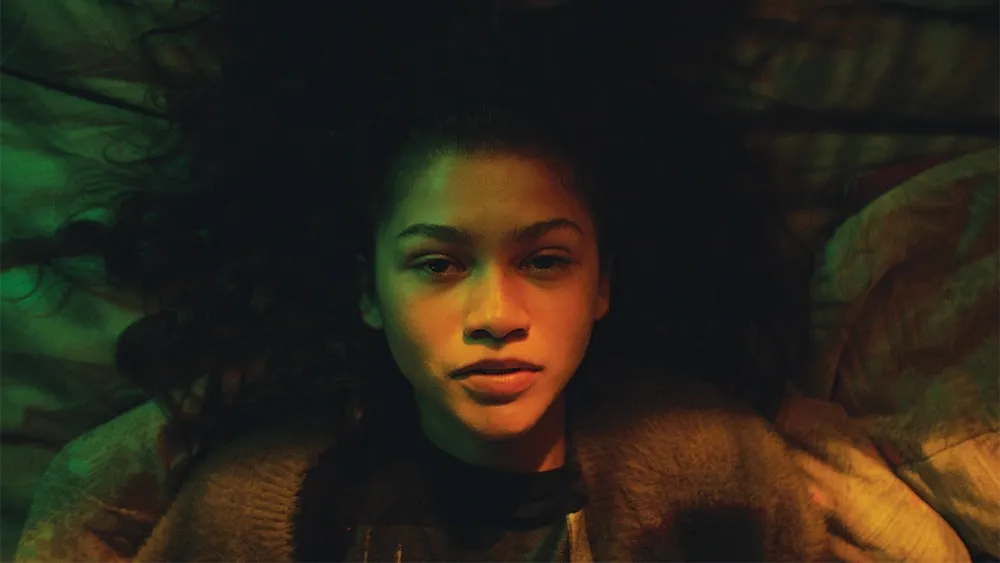
We've got a music-centric two-parter today. Down below I talk with Jen Malone, the widely lauded TV and film music supervisor, about her colleagues' recent decision to try to unionize the profession, as well as what it's like curating music for shows like Atlanta and Euphoria. Also today, for paid subscribers only, we've got a concert review written by Connor Scully of what sounds like a night with Hell World's house band. He went to Delaware to see the famous oafs the Winklevoss Twins, who are currently on tour performing covers of Rage Against the Machine and Red Hot Chili Peppers.
Subscribe here to read that piece and get access to every issue and the archives.
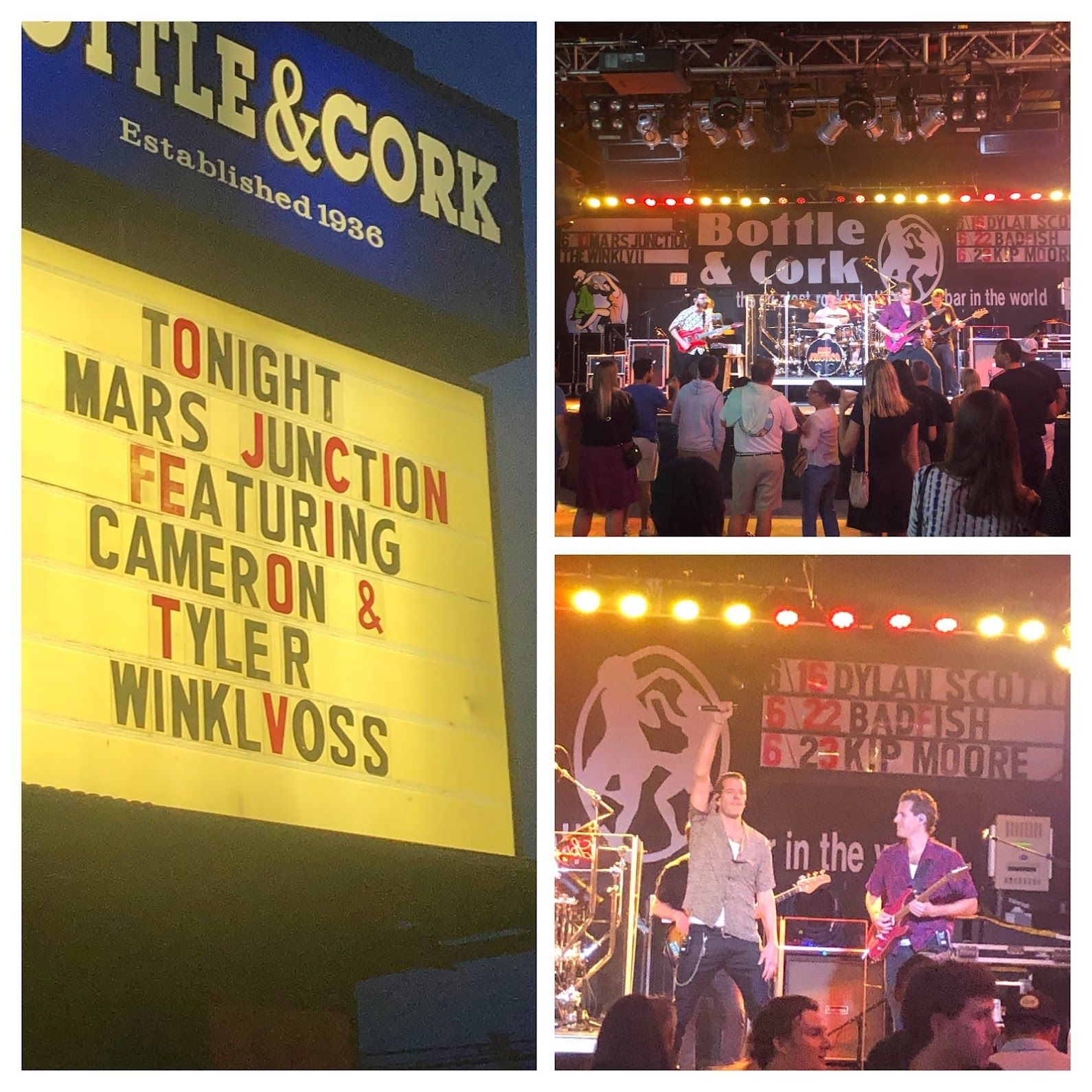
First check out this video from Kansas City Police dutifully passed along by this KCTV5 reporter. The thing I like most about it is how real it all definitely is.
EXCLUSIVE: The @KCKPDChief is opening up about potential fentanyl exposure.
— Angie Ricono 🌻 (@angiericono) June 16, 2022
The medical response from fellow officers is amazing.
Watch it all tonight at 6pm. @KCTV5 pic.twitter.com/isHPfC3Krm
You may have missed this Hell World from a couple months ago about this exact sort of copaganda.
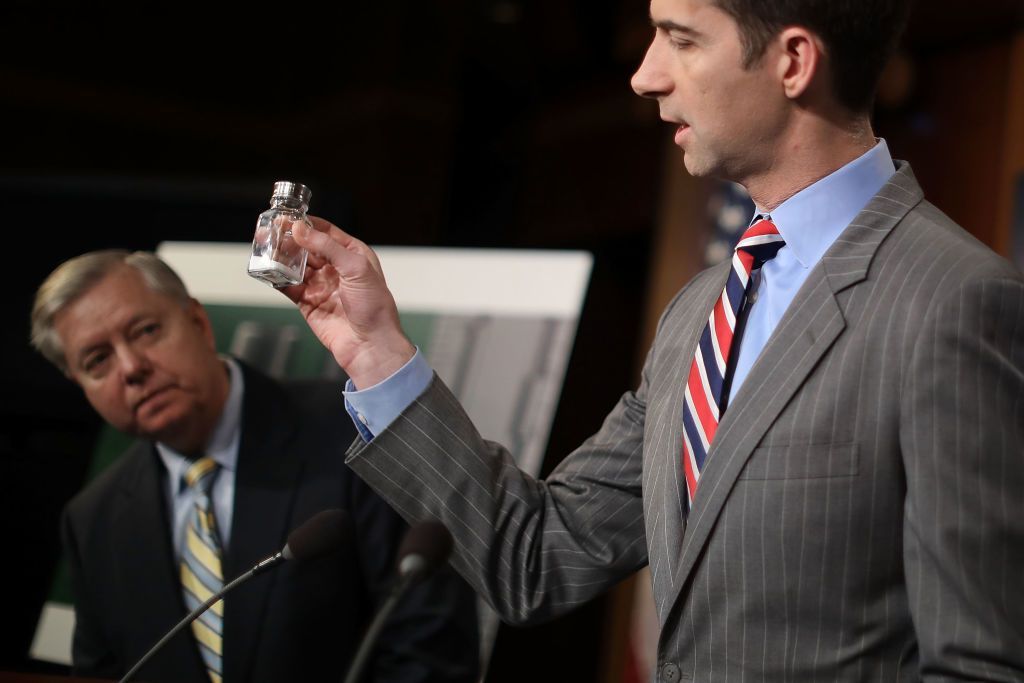
None of which is to say that fentanyl isn’t actually dangerous when used and (I know you know this) anyone out there using right now should be especially careful. It’s just that it quite simply does not attack you like a sentient alien molecule riding on the air from host body to host body as the cops would have us believe.
The reason they want us to believe it does is obvious to anyone reading this but just to lay it out anyway the more dangerous the job of a cop appears and the more that idea is laundered through the media the harder it becomes for people to push back against anything they say or do never mind get anywhere remotely near something like defunding them. After all look at how valiant they are out there risking their lives every day to rid the streets of the scourge of dangerous drugs. For us.
It also provides further justification for destroying the lives of the people they arrest for possession of said drugs. If people like this can use drugs this dangerous they must naturally be inhuman.
Elsewhere the most recent issue was about the reportedly bipartisan gun legislation in the works and the so-called "boyfriend loophole."
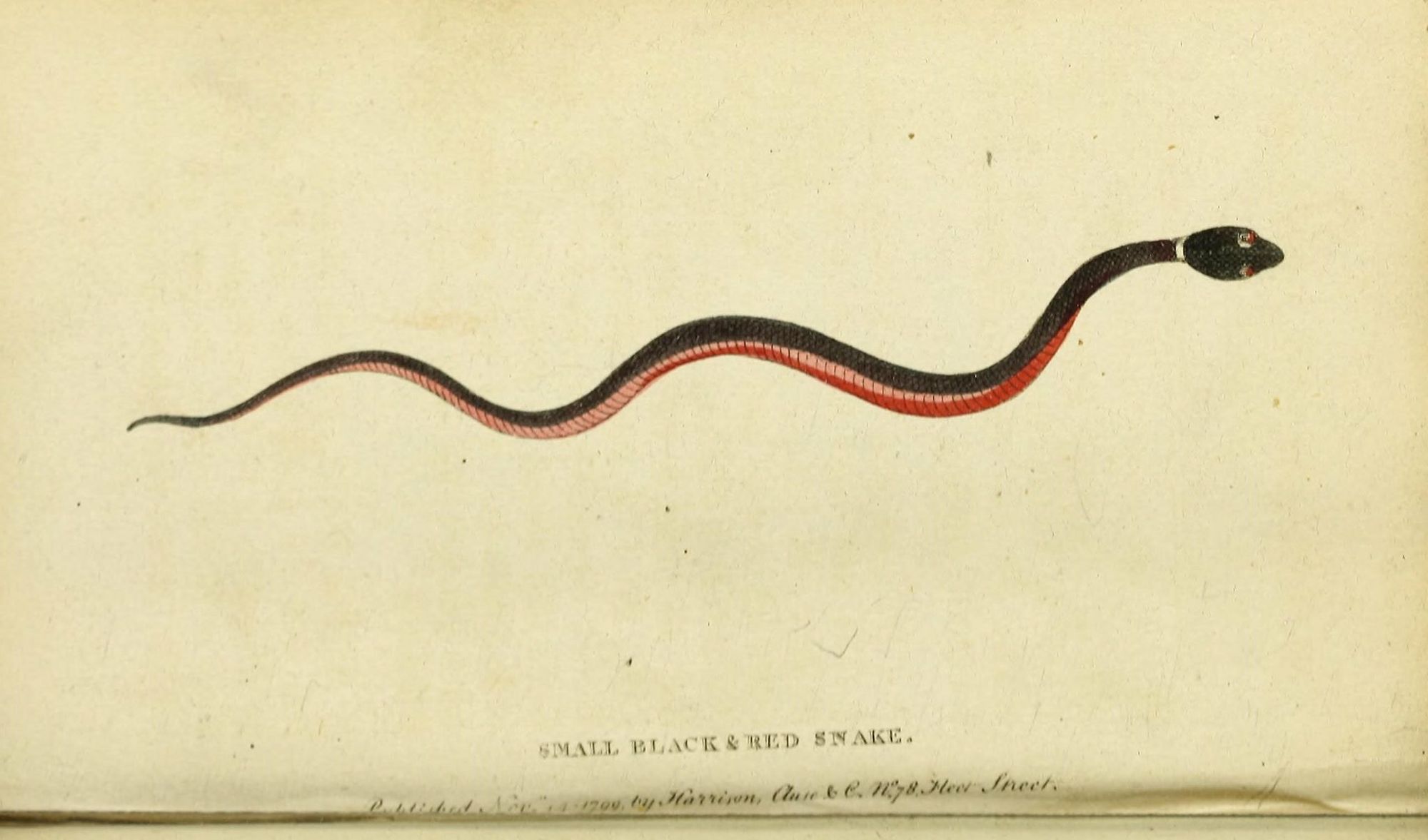
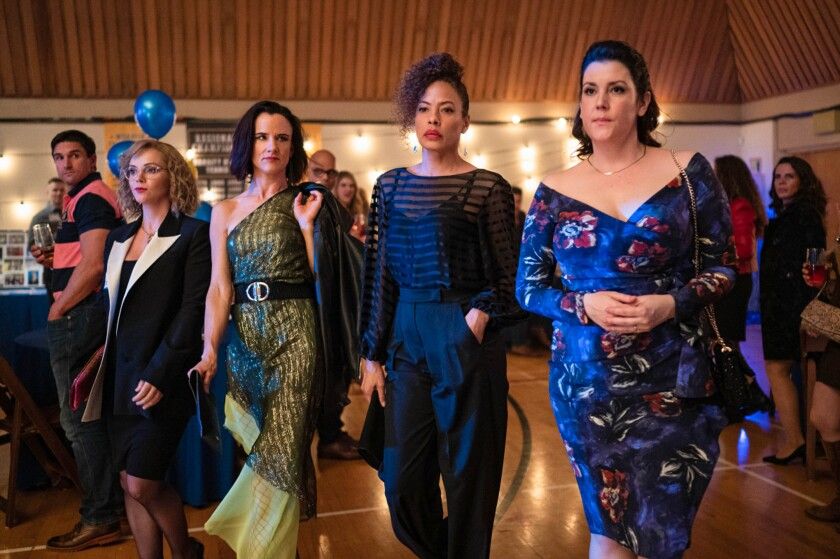
Earlier this month an overwhelming majority of the roughly 500 film and television music supervisors voted to join the International Alliance of Theatrical Stage Employees. Music supervisors are the people who, among many other things, select the songs that have become an increasingly important part of the viewing experience (as seen most recently with the Kate Bush Stranger Things hype). They have long been one of the few non-unionized trades in the industry.
Perhaps unsurprisingly the Association of Motion Picture and Television Producers, the group that bargains on the behalf of studios with other industry labor groups, has declined to voluntarily recognize their effort.
Music Supervisors are coming together to #unionize. We're one of the few in Film and TV that don't get workers rights under our craft. Today @AMPTP refused our ask to grant equal rights. Stand with our community in our fight for equality. #MusicSupervisorEquity #SilentWithoutUs
— Music Needs Supervision (@MusicNeedsSupes) June 2, 2022
"Music Supervisors are responsible for curating, securing/negotiating licensing for, and coordinating the use or creation of recorded music in service of a director’s or showrunner’s vision and budget," as the IATSE explains. "Music Supervisors facilitate some of the most beloved moments in film and television, but responsibilities have expanded, conditions have deteriorated, and pay has been stagnant and does not reflect the cultural impact of their work."
They're hoping now to be treated equitably compared to their other unionized co-workers, get access to healthcare and retirement plans others in the industry have, establish a standardization of pay rates, and see a reining in of the erratic payment schedule in which they often have to wait for months on end to be paid. Basic stuff everyone in every industry deserves. Even people who seem, from the outside at least, like they have "the coolest job ever."
As luck would have it, an old pal of mine from the Boston music scene, Jen Malone, happens to be one of the most acclaimed music supervisors working in the field at the moment. A two-time Emmy nominee, she's worked on a number of films and shows in which music is an essential part of the appeal like Atlanta, Yellowjackets, The Umbrella Academy and Euphoria. I called her up to talk about the unionizing effort as well as what it is a music supervisor actually does.
I imagine people are always telling you “oh my god you have the coolest job ever.”
Yes, people tell me that. And that they would make a great supervisor and that they can do my job.
Are people constantly giving you song suggestions too?
I do get DMs from people that are like “this song would be perfect for Euphoria in a drug scene.” I had one situation where – and obviously I don’t necessarily respond to some of them – but someone was getting very upset I wasn’t putting their song in the show. I get a lot of submissions for songs called like “Drugs” and “Euphoria.” When I was doing Creed I got several songs titled “Knock Out” in my inbox.
Kind of on the nose.
A little!
You’re doing penance for being a music publicist years ago! Now you know what it’s like to be constantly getting pitched.
It is interesting being on the other side. But at the same time I think it makes me have a little more empathy for the people that are constantly pitching. It’s like, I know, I’ve been in your shoes, and if I could respond to everybody with a thanks I would, but I absolutely can’t. That’s all I would spend my day doing.
We worked together on stuff from time to time when I was mainly a music journalist. Do you remember if I was a dickhead or not when you would pitch me?
Um…. No I don’t think so. I do remember if you didn’t like one of my bands you told me.
Better to be honest right?
Yes… we’ll go with that.
With your job though, it’s not like you’re just vibing all day making playlists. There’s a decent amount of creativity to it, but also a lot of bullshit paperwork and stuff like that right?
I think our job is very misunderstood. People watch the shows and think that it is just going through Spotify and putting songs in. But if you can’t clear a song, or can’t clear it in time, and you can’t afford it, you can’t use the song. That’s my responsibility to clear it and make sure we can afford it and oversee the budget.
But not only that, we start at the script phase. We’ll get scripts, and because revisions are always coming out, we have to read them to make sure there’s nothing sung on camera, or no lyrics sung on camera, because we have to clear that before you even shoot it. Then taking that a step further, if it’s not cleared or clearable, you have to get other options approved by the showrunner immediately. TV production schedules are so insanely tight. Sometimes you’ll get a script and they just decided to put a song in there, and they’re shooting it in three days. You have to make sure it’s ready to go.
There are also little things that I think audience viewers might take for granted. The scene is they’re at a jazz club and there’s a jazz band playing. They’re not performing live. So we have to decide how many people the director wants to see on stage. Do we have room on location for a piano. What kind of song do you want and then make sure we send options. Then you have to work with the music contractor to hire the musicians. From there it’s how old do you want them to be, any specific “looks.” You work with the music contractor to get the director to cast it. So there’s an element of casting to my job.
Then if someone is singing on camera you have to bring them into a studio and pre-record them live. Nothing is ever done live because you can’t control the sound quality in post if it’s done live. Again, on camera, whether it’s a jazz band, or it’s like Euphoria, the whole musical number at the end of season one, that’s what a music supervisor has to do and deal with.
While you're shooting however many episodes you’re shooting, and you’re keeping up with the scripts, you’re starting to work with the editors in post-production as they’re putting together the show. They’re sending you scenes and finding options for songs. You start clearing songs.
The reason I’m going on and on about this is the scope is so wide that people don’t even realize.
Right. Well you’ve just convinced me I don’t actually want to do the job after all. It’s not just firing up a mixtape and calling it a day and being like look how good my taste is.
Yes. And getting into clearance, there are certain songs where you have to find out who wrote the song and clear their portion. There are splits and sometimes, you know, I think my record is seventeen songwriters on one song who owned a certain percentage. If you’re short .05% percent you have to find who owns that .05% percent or you can’t use the song. Sometimes those people have passed or who knows where they are. But you have to find them and get their approval and get everybody to agree on a price.
You also might have songs like Beyoncé’s “Hold Up” in Euphoria season one that had two samples in it and an interpolation.
You have to clear the samples in each song as well, or are they already covered by being licensed for the song in the first place?
No. You have to clear it all. “Hold Up” samples a Harry Nilsson song, so I had to clear Harry Nilsson’s portion. And he has different publishers for different territories. There’s Warner Chapel that owns the world excluding the BRT, which means the British Reversionary Territory.
I’m throwing everything at you here, but, again, for everyone who tweets me that they can do my job, I just want to put all this out there.
You convinced me! Why do people say no to using their songs generally? Is it always the money? Sometimes people don’t want to be associated with a specific scene in Euphoria, the sex and drugs, or whatever?
The denials depend on the artists and the scene, and it does depend on the money. Some artists command a higher fee and they won't negotiate. It is what it is and if you want it you pay for it. But then there are some people that just don’t license their music period. Sometimes you have to send script pages. So there are reasons why people deny certain uses. Does it happen often? I would say with Euphoria it happens a little bit more because of the content. But we always hope for the best, and I do whatever I can if it is a denial to reverse it. Whether that’s writing a letter, or having the showrunner write a letter, sending them the scene. That’s when I use my PR experience.
I’m sure it varies widely, but with showrunners or directors is there a balance one way or another where it’s you and your people coming up with the songs, or do they often have songs in mind that they’ve already imagined in the scene?
It’s different for every show. There are a lot of times that songs are scripted in. They might be part of the narrative. For example, in Euphoria, the whole Gerry Rafferty thing, that was something where it was a thread throughout the first couple episodes. Or with INXS. That’s part of the narrative and the story and character development, so that was already in there. But with Euphoria then you have another thirty spots to fill.
I haven’t seen too much of it, but I understand there is tons of music involved in that show.
That’s one of the biggest shows for music. I think there were like thirty seven songs in the first episode. Closer to thirty in the second episode. I think some people would call it a musical for all intents and purposes.
I guess this has always happened, like when we were young movie soundtracks were a big way to introduce people to music. It feels like that’s happening more with TV now. The Kate Bush thing is the latest example. Are you bummed you didn’t drop that one into one of your shows by the way?
I love Kate Bush and would love to have her in one of my shows, but it’s funny… Think of “Girl, You’ll be a Woman Soon." You’re never going to sync that song in a show again because that is Pulp Fiction. Reservoir Dogs has “Stuck in the Middle With You.” You’re probably not going to want to use that. Now Stranger Things and Kate Bush join those ranks. I love this season. I think Nora [Felder] does an incredible job of using music, and it was just such a perfect placement.
You know who else is doing great music selections is Peacemaker. You didn’t do that one did you?
No, but I watched it, and James Gunn and I apparently have the exact same taste. [Our mutual Boston pals] Bang Camaro were in there!
Right! That was super exciting. I think I saw they might have even gotten back together after that.
And he’s got The Hellacopters in the show. Hanoi Rocks. It was so good and fun.
You do the music for Atlanta as well. How does that work? Donald Glover seems like he must have a really specific vision. Or is there leeway there with what goes into the show?
He gives us a lot of autonomy to have the editors and myself offer up ideas. Obviously he signs off on everything, but we also work very closely with Hiro Murai, who is such a strong, if not the creative force, of the show. But working with Donald is such a pleasure.
So if there’s so much on your plate, why isn’t your job part of any union? Why has that been an oversight? I don’t know much about the industry beyond what most people know, but it seems like every different part of the process, actors, directors, crew, all have their own unions. How did it come that music supervisors never unionized?
I think it’s a matter of our job just being very misunderstood for a very long time. We’ve only had the music supervision Emmy for six years. And music supervisors have only been allowed to join the Television Academy in the last six years. We also didn’t have the Guild of Music Supervisors at the time. They’re pretty incredible when it comes to advocating for us.
I also think our job has come more and more into the spotlight because of music in shows being so much more talked about. Music has always been a part of storytelling, every movie will have a music moment that will make you either relate or sympathize or feel for the characters, or just draw you into the story more because of the music moment. But now with social media our job is so much more in the spotlight and valued. Every meeting I go on for a show now it’s “We want music to be a character in the show.” I’ve heard that a lot more in the past five years than before.
What was the job title called before then?
It was always music supervisor. Because you always have to have somebody who knows how to do the job. You think about The O.C. or Grey’s Anatomy…
I don’t remember if they started it, but they were doing those show-ending montages with a big swing music selection pretty early it seems like. And it was a huge way to boost a band’s profile. To land a show like that.
Yup. And I think with radio becoming less important and just sticking with the format of playing the same fourteen songs every hour every day, music in TV shows became the music discovery vehicle. It would get people talking about the bands and get people talking about the show and vice versa and explode from there.
And TikTok is where people are sharing clips of the music now. So wait, what’s the difference between a music editor and a music supervisor?
Editors are cutting the song to fit to picture. Sometimes, for example, the song will come in, but you just want to get to the chorus, so you have to finesse an edit to get to the chorus. They also work a lot with temp score, and work with the composer on how to place the score in the show.
So what do you want people to know about your unionizing effort?
I think at this point it’s just about getting the word out there that we are not treated fairly like other crew members. We do not have equal rights like other crew members. And we are finally starting to advocate for those rights. For example, on certain projects, most supervisors get paid episodically. We usually get half on commencement and half on completion. If a show doesn’t have a specific air date you can’t send out the last part of the clearance process, which is a confirmation of use. First we say we may want to use this song over this scene. How much does it cost and do we have approval to use it? Ok great. Sometimes you use it, sometimes you don’t. But the second part is the confirmation. After the episode is done and finished and mixed, you say to the [musician or estate] we did use the song, we agreed on these terms and this cost, please issue us a license. The legal department does that. On that legal document you have to have an airdate listed. With streamers sometimes you don’t have an airdate until months after you’re done. That means we can’t send out the confirmations, which means we don’t get paid.
Whereas everyone else on the production, under the terms of their contracts, are getting paid on a regular schedule.
Yes. And there are times when it’s just chasing paperwork and chasing checks. Most people, 90% of the crew and cast, get paid every two weeks. They don't have to think about it. We have to invoice and chase. Sometimes it will be, whoops, we paid you for episode six. Ok, but you haven’t paid me for episode one and two yet! There’s no steady paycheck. It could be six months, especially with the streamers, where the show is in the can, but we still haven’t gotten paid.
That sounds a bit like what it’s like to be a freelance journalist. You have to chase down your money. It could be months of not knowing when it’s going to be published, then months after that waiting to get paid.
Yup.
I understand Covid, like it did with a lot of things, put some of these issues into focus for you all. You didn’t have insurance and couldn’t apply for unemployment when the industry was shut down.
Oh yeah. We don’t get health benefits at all from productions.
You're basically independent contractors for the most part?
Yes. You look at people who work on crews. They go from show to show to show. But when they’re on the show they’re getting paid weekly. They’re employed by that show. Afterwards they go to the next show. Which is the same thing as us. We’re in the same structure in a way as everyone else on the crew, but we are not treated the same way.
Is there anything you want people to do?
I think just getting the word out. Another thing I think is important that people don’t realize is we start at the script stage, and we don’t finish until the delivery of the final episode. It’s kind of like, who else on the crew, outside of the producer, showrunner, director, is on for that long? And we only get paid per episode. We don’t get health or benefits or anything, we just get paid when someone gets around to our invoice and decides to pay it.
I think awareness of this problem, understanding that this is unfair, asking questions about it, engaging with our socials and supporting them is important. Like when the strike was avoided last year it helped that there was such a social media blitz, with people saying, yeah, this is kind of bullshit, why are conditions like that, and putting pressure on. People don’t know what we do, and the amount of work we have, and our contributions both creatively and on a business end that we do for a show. That it’s not just sitting around listening to music all day and being cool and making playlists.
